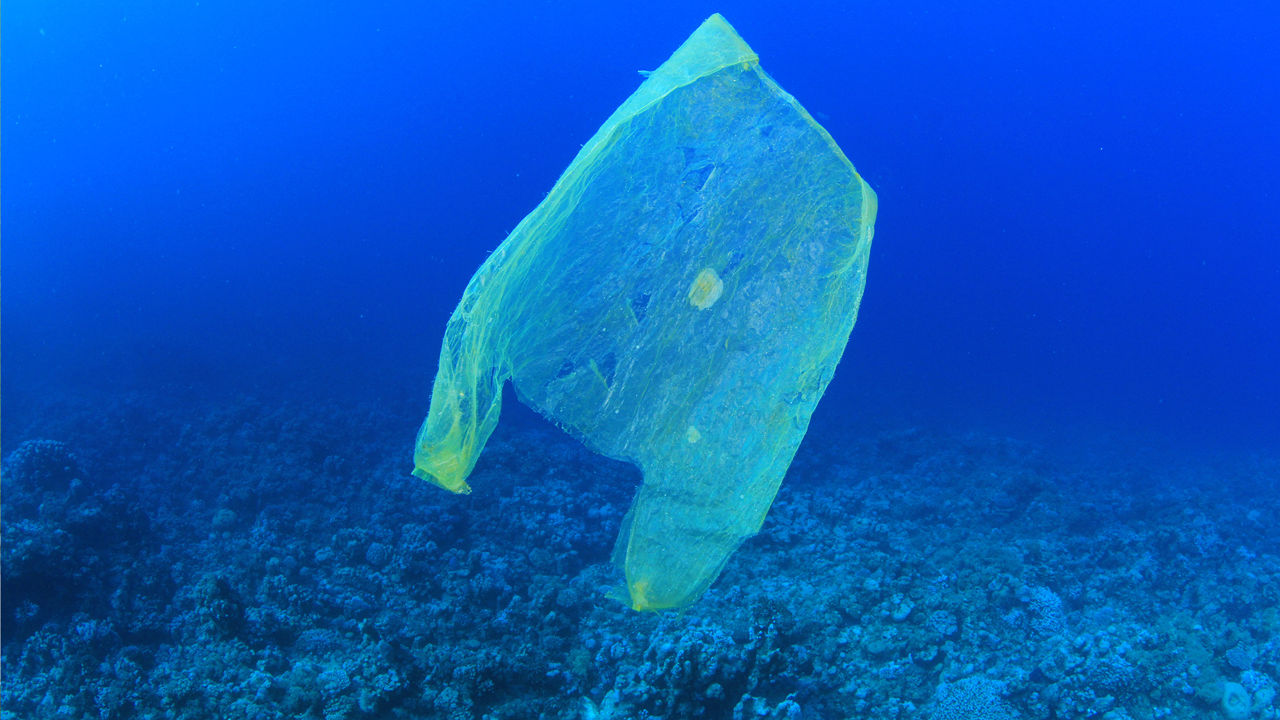Gauri Chandra discusses the behavioural alternatives to discouraging the use of environmentally-damaging plastic bags.
Each year about a trillion plastic bags are used worldwide. In 2014 alone, supermarkets issued over 8.5 billion single-use carrier bags in the UK. Plastic bags, the litter they cause and their harmful effects on the environment are no longer a tolerated nuisance, they are perceived to be a widely discouraged vice. Governments are attempting to tackle the issue, and in recent years common policy interventions include enforcing stores to charge a monetary fee for a plastic bag, or banning the sales of plastic bags altogether.
Shortcomings of the current policy
There is, however, substantial evidence to cast doubt on the long-term effectiveness of such policies. Introducing a monetary fee for all single-use plastic carrier bags, such as the five pence (GBP) charge enforced on large shops in England by the UK Government in 2015, provides desired results initially, however, over time the decline in plastic bags use is expected to boomerang after the initial shock of the charge wears off and individuals become accustomed to paying the fee. This phenomenon is termed as the ‘Rebound Effect’. It has been observed in Ireland, Italy and South Africa, where governments were compelled to increase the charge for plastic bags every few years to maintain the reduced levels of consumption. Moreover, the exchange of money can sometimes crowd out emotions of guilt or pride that the consumer may feel when deciding to purchase the plastic bag, thereby reducing their sense of moral responsibility toward the environment.
What are the alternatives?
In a recent study, we found that consumers can be nudged with carefully designed non-monetary interventions to bring their own bag to the store. Over 225 participants were exposed to a combination of monetary and non-monetary interventions across six different subject conditions in LSE’s Behavioural Research Lab.
A simple change in the framing of the question sparked changes in behaviours. For example, getting participants to respond to the question ‘Will you be bringing your own bag to the store?” had a stronger effect on nudging individuals to bring their own bag to the store than the question “How many plastic bags would you need?”. In fact, participants exposed to the former question, who were given a binary ‘Yes/No’ response option, were found to be just as likely to bring their own bag to the store, as the participants who faced a charge of five pence per plastic bag.
Paying for bags reduces guilt
An analysis of the feelings of guilt reported by participants during the experiment showed that those who opted to take a plastic bag after paying five pence experienced lower levels of guilt on average than participants who chose to take the plastic bags free of charge. Our results provide support for the theory that money crowds out emotion, specifically that of guilt, thereby reducing the sense of moral obligation toward the environment. Our findings are also in line with prominent academic studies that show erosion of intrinsic motivation with the introduction of a monetary intervention.
Other environmental benefits?
It would be naive to assume that the effect of such interventions is limited to plastic bag use and a shift in the level of emotions experienced. In the words of Dolan and Galizzi, we must ‘capture all ripples of a behaviour when a pebble of intervention is thrown in the pond’. Thus, we tested for the spillover effect of the interventions on two other behaviours associated with being environmentally friendly – energy conservation (turning off the lights while leaving the room) and recycling waste (throwing trash in the recycling bin instead of general waste bin). We found the participants subjected to non-monetary interventions to have a higher score on each of the two behaviours observed, thereby indicating a positive spillover effect.
The findings from this study, corroborated by results from its large-scale implementation in actual stores, could have strong bearing on upcoming policy decisions as well as management practices to achieve and sustain low levels of plastic bag consumption, or bring about other desirable changes in behaviour.
Notes:







Really a great post. Worth reading. Thanks for sharing.
plastic bags badly effect our environment. so use on woven products